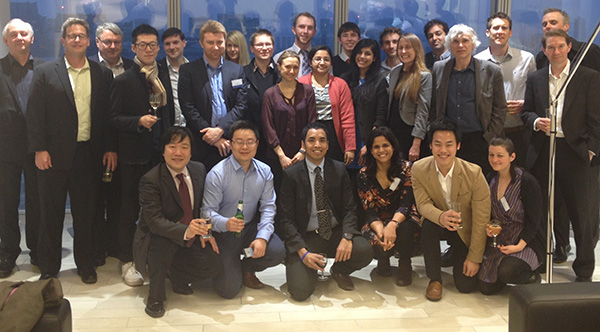Developing the first London pre-diabetes risk map
As part of CUSP’s Spring Break, a group of 10 students from CUSP in New York alongside 6 Warwick students from the Centre for Doctoral Training in Urban Science (plus several academics) took part in a Data Dive working with partners Experian and the Greater London Authority (GLA) to investigate and analyse data on one of London’s key health challenges – diabetes, specifically the risks of developing diabetes.
In the period 1996 to 2009, the number of people diagnosed with diabetes in the UK rose from 1.4 million to 2.6 million. In 2008 alone, more than 145,000 people were diagnosed with diabetes in the UK; more than the population of Middlesbrough, and equivalent to 3 new diagnosis every 10 minutes.
The Data Dive took place over 4 days, firstly preparing, developing a methodology and learning about risks factors for diabetes from Prof Sudesh Kumar (WMS), then analysing London data and presenting back to GLA.
The Data Dive was a great success, highlighting how urban science and data analysis techniques can be used to give new richness to public health data and new ideas for policy interventions. Understanding which groups are at particular risk of developing diabetes and where they live is crucial in targeting intervention and resource. Specifically, the data dive identified patterns of diabetes prevalence within boroughs and life style groupings. It is at an early stage but CUSP are now in discussions with GLA about access to further healthcare and lifestyle data and are looking at how they can continue to explore patterns in the data to improve the health of city inhabitants.

Warwick and CUSP
Warwick Insitute for the Science of Cities (WISC) is a partner with the Center for Urban Science and Progress (CUSP) which is based in New York.
CUSP is an applied science research institute dedicated to researching and creating new solutions for the pressing and complex challenges confronting the world’s growing cities.
Find out about plans for London-based Centre for Urban Science and Progress
